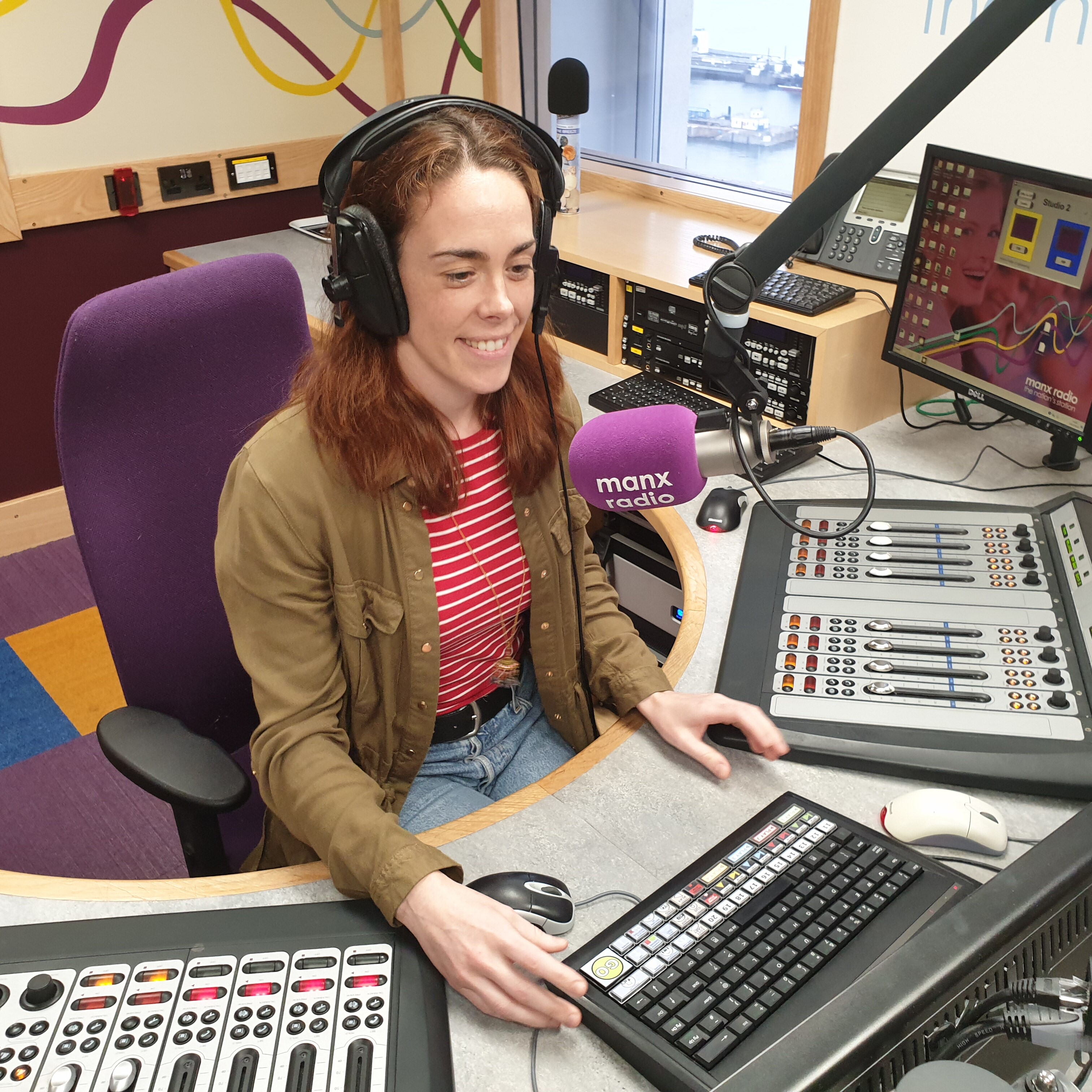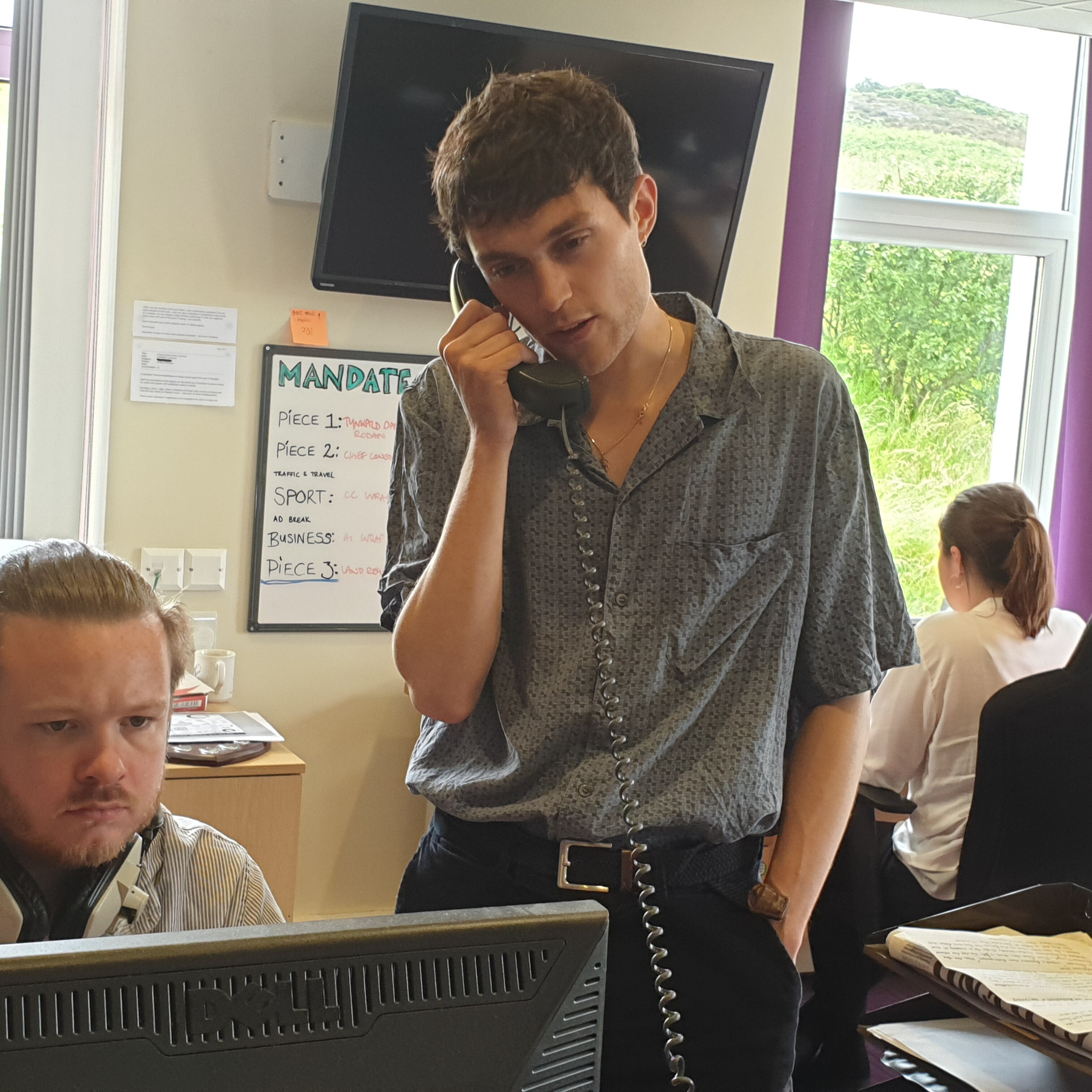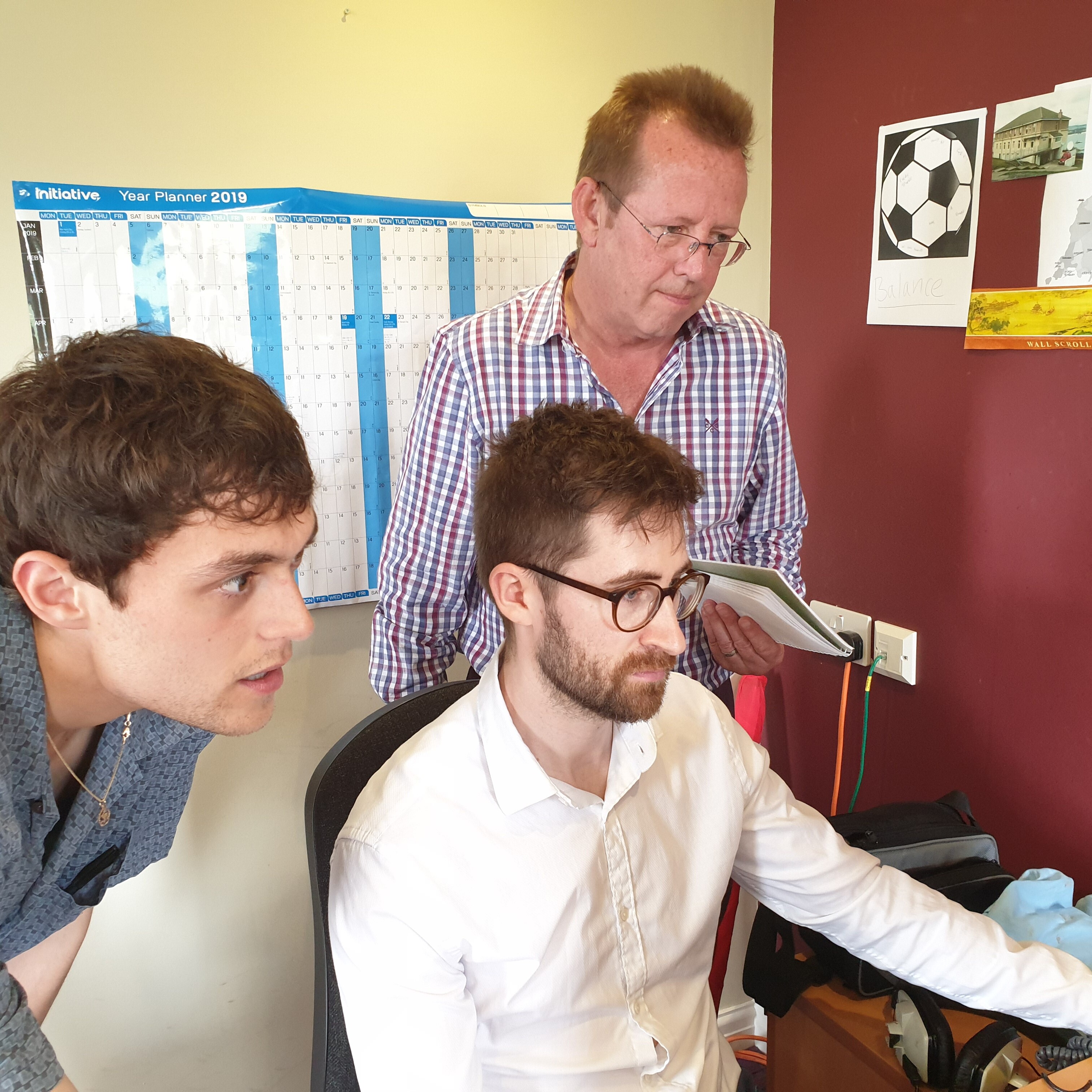As part of our Global Grant scheme, media trainers Professor Claire de Than and Siobhann Tighe travelled to the Isle of Man to provide refreshers in media law and interview techniques to staff from the island’s public broadcaster, Manx Radio.
“Out of my studio window, the sea is looking very calm,” says Alex Wotton as she introduces the weather news. Alex is a broadcast journalist at Manx Radio and she’s presenting Mandate, the breakfast news programme. Manx Radio probably has one of the best views in the world for a radio station. Their studios are up on a hill, overlooking the capital town of Douglas, the sea, the semi-circle seafront, the lighthouse, a tiny island with a small castle on it and cruise ships.
Alex’s bulletin that morning includes a controversial plan to build new houses on the island; teachers’ salaries and the closure of a pick-your-own strawberry farm.
Alex and her colleagues at Manx Radio have been getting refreshers in media law from Professor Claire de Than from City University in London as well as tips into carrying out great interviews from Siobhann Tighe, an experienced BBC reporter and producer also based in London.
It’s theoretically easier for journalists to be sued for defamation and libel on the Isle of Man compared to elsewhere in the UK
Although journalistic law in the Isle of Man is based on UK law, there are slight differences in this Crown Dependency. According to Professor Claire de Than, who incidentally is a fellow Channel-Islander from Jersey, this means it’s theoretically easier for journalists to be sued for defamation and libel on the Isle of Man compared to elsewhere in the UK. Therefore to be knowledgeable about the law, is to protect yourself.
The Isle of Man has a population of just over 80,000 people. Working as a journalist in any island state has some very specific challenges partly because everyone knows everyone else and livelihoods can depend on how well you get on with your neighbours. Siobhann knows just how hard it is for reporters working on islands because she’s trained journalists in Tonga, Seychelles and Caymans. She’s seen at first-hand how self-censorship is a very real risk. Island journalists are often criticised for what they report on, and are accused of being too soft with “that person” and too hard on someone else. Getting flak from both sides is seen as a good indicator that you’re doing it right. However, conflict of interest for staff can be a problem and means that an individual journalist simply can’t report on a story because it would mean interviewing someone they know, maybe even someone they’re married to or are related to.
There’s also a heightened sense of “duty of care” towards your listeners which makes for an interesting debate when discussing the ethics of journalism. Often journalists have to decide whether or not to include a piece of information in their report which may be legally sound and would make compelling detail, but could have a negative impact in the community. These duty of care issues often revolve around victims of crime or victims of accidents. These kinds of editorial decisions can’t be rushed and often require careful and sensitive conversations with affected families. One of the safest approaches to these stories is sticking to the bare facts, even if it means your piece will be brief.
Like many local radio stations around the world, the team at Manx Radio is small, tight-knit and busy. They have to be flexible, adaptable and able to turn their hand to any story that lands on their desk. Having a bit of time out to reflect, analyse and debate with Claire and Siobhann has given them the chance to recognise their many achievements and think about how they can take their story-telling and journalism further, in a way that’s defamation and libel proof.
This project was undertaken as part of our Global Grant scheme, providing staff of PMA members training and exchange opportunities with other public media organisations.
Find out more
Header Image: Manx Radio Participants. Left to right – Ewan Gawne, Rhian Evans, Sian Cowper, Alex Wotton, Ed Oldham, Aaron Ibanex, Dollin Mercer. Credit: Siobhann Tighe/Public Media Alliance
Related Posts
17th December 2018
Decision on future of Isle of Man’s public media delayed
Select Committee’s findings on the…
4th December 2018
PMA Response | Independence of public media at risk on the Isle of Man
The Public Media Alliance calls on the…
23rd November 2018
Independence of public media at risk on the Isle of Man
Manx Radio’s 50thbirthday celebrations…






